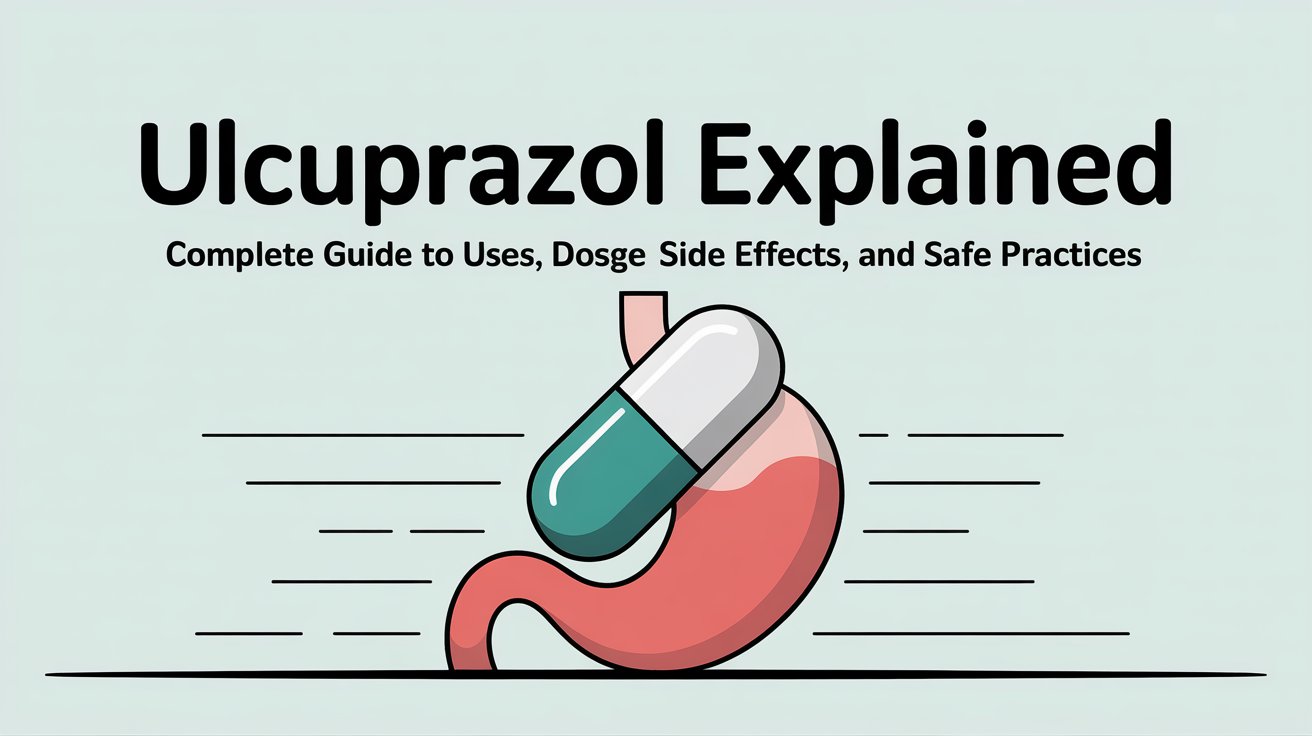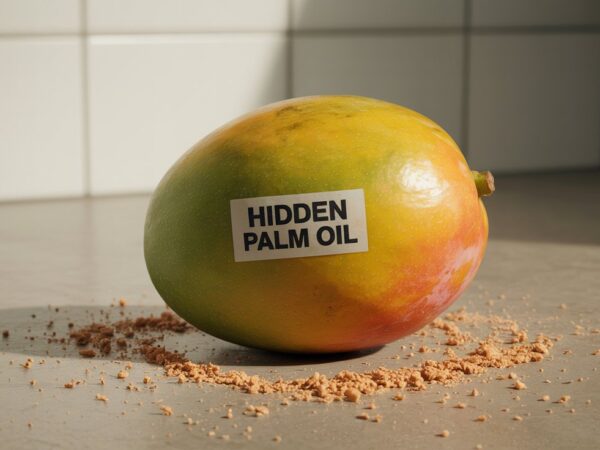Ulcuprazol Explained: Complete Guide to Uses, Dosage, Side Effects, and Safe Practices

What Is Ulcuprazol?
Ulcuprazol is a widely prescribed medication that belongs to the class of proton pump inhibitors (PPIs). Its main purpose is to reduce the amount of acid produced in the stomach, making it highly effective in treating several digestive conditions linked to excessive acid. Scientifically, Ulcuprazol is a brand formulation of omeprazole, which has been trusted by doctors worldwide for decades. By targeting the acid-producing cells of the stomach lining, Ulcuprazol helps patients achieve relief from painful and uncomfortable symptoms like heartburn, acid reflux, and stomach ulcers. It is often used as both a short-term and long-term treatment depending on the underlying condition, and its proven track record has made it a staple in gastroenterology care.
What Does Ulcuprazol Treat?
One of the most common uses of Ulcuprazol is in the treatment of gastroesophageal reflux disease (GERD), a condition in which stomach acid flows back into the esophagus, causing irritation and burning. Patients with frequent heartburn often find significant relief with this medication. Additionally, Ulcuprazol plays an essential role in healing gastric and duodenal ulcers, which are painful sores that develop due to excessive acid, bacterial infection with Helicobacter pylori, or long-term use of painkillers like NSAIDs.
Doctors may also prescribe Ulcuprazol for Zollinger–Ellison syndrome, a rare but severe condition in which tumors cause the stomach to overproduce acid. Another important use is the prevention of ulcers in patients who rely on anti-inflammatory medications, as these drugs can increase the risk of stomach damage.
Ulcuprazol Dosage & How to Take It
The dosage of Ulcuprazol depends on the patient’s age, health condition, and severity of symptoms. For most adults, the typical starting dose ranges from 20 mg once daily, usually taken before a meal. In some cases, especially for ulcers or severe GERD, the dose may be increased under medical supervision. Treatment duration often lasts from two to eight weeks, though chronic conditions may require longer use.
Ulcuprazol should be swallowed whole with water, preferably in the morning before food, as this helps maximize absorption and effectiveness. Patients are advised not to crush or chew the capsules since they contain enteric-coated granules designed to survive stomach acid until they reach the intestine. If a dose is missed, it should be taken as soon as remembered unless it is close to the next scheduled dose, in which case doubling up should be avoided.
Special precautions apply to elderly patients, individuals with liver impairment, and those who are pregnant or breastfeeding. In these cases, doctors often adjust the dosage or monitor patients closely to ensure safety.
Onset, Duration & What to Expect
Ulcuprazol does not provide instant relief like over-the-counter antacids. Instead, it works gradually by suppressing acid production over several hours. Most patients begin noticing improvements in symptoms within one to four days of consistent use. For ulcer healing, complete recovery may require several weeks of treatment.
The effects of Ulcuprazol typically last for 24 hours, which is why it is usually taken once daily. Patients are advised to continue taking the medication as prescribed even after feeling better, since stopping too early can cause symptoms to return or prevent ulcers from fully healing.
Side Effects & Safety
Like any medication, Ulcuprazol has potential side effects, though most are mild and temporary. Common side effects include headache, nausea, diarrhea, constipation, and abdominal discomfort. These usually resolve on their own as the body adjusts.
More serious but less common effects include low magnesium levels, vitamin B12 deficiency, and kidney issues if the drug is used for prolonged periods. There is also a slightly increased risk of gastrointestinal infections, since reducing stomach acid makes it easier for bacteria to survive. Patients on long-term therapy should undergo regular medical check-ups and blood tests to monitor nutrient levels and overall health.
Red-flag symptoms that require urgent medical attention include difficulty swallowing, chest pain, unexplained weight loss, or severe stomach pain, as these may signal a more serious underlying condition.
Drug & Food Interactions
Ulcuprazol can interact with several medications, affecting how they are absorbed or metabolized. Notable interactions occur with antifungal drugs, antiviral medications, and thyroid treatments, where effectiveness may be reduced. It can also interfere with blood thinners such as warfarin and anti-platelet drugs like clopidogrel, increasing the risk of bleeding complications.
Certain foods and drinks, including caffeine, alcohol, and spicy meals, may worsen acid reflux symptoms even while on Ulcuprazol, so lifestyle modifications are often recommended alongside treatment. Contrary to some myths, Ulcuprazol does not neutralize food instantly, so combining it with other acid reducers like antacids should be done under medical advice.
Ulcuprazol vs. Other Acid Reducers
While antacids provide quick relief by neutralizing stomach acid, they do not address the root cause. Ulcuprazol, as a PPI, reduces acid production at its source, offering longer-lasting relief. Compared with H2 blockers such as ranitidine or famotidine, Ulcuprazol is generally stronger and more effective for severe or chronic cases.
Other PPIs, such as esomeprazole or pantoprazole, are alternatives that work in similar ways, but Ulcuprazol remains widely used due to its affordability and accessibility. Choosing between these options often depends on individual response, side effects, and physician preference.
Real-World Use Cases
Many people take Ulcuprazol for short-term relief from frequent heartburn, often in 14-day over-the-counter courses. Others may use it in combination with antibiotics to treat ulcers caused by H. pylori. In chronic GERD cases, patients may be prescribed long-term therapy, often followed by a step-down approach where the dose is gradually reduced to avoid rebound acid production.
How to Take Ulcuprazol Correctly (Practical Tips)
Consistency is key to getting the best results. Patients should take Ulcuprazol at the same time each day, usually in the morning before breakfast. For those unable to swallow capsules, some formulations allow the granules to be sprinkled on soft food like applesauce and swallowed without chewing.
When traveling, keeping the medication in its original packaging helps protect it from moisture and heat. If a dose is missed, it is best to resume the normal schedule rather than doubling up.
Lifestyle Habits That Boost Results
Medication works best when combined with healthy habits. Patients are encouraged to avoid lying down immediately after meals, reduce late-night eating, and elevate the head of the bed to minimize acid reflux at night. Cutting back on alcohol, caffeine, and smoking can further improve results. A balanced diet rich in vegetables, lean proteins, and non-acidic foods also supports digestive health.
Buying Ulcuprazol Safely
Depending on the country, Ulcuprazol may be available both over-the-counter and by prescription. Patients should ensure they purchase from reputable pharmacies to avoid counterfeit products. Generic versions containing omeprazole offer cost-effective alternatives without compromising quality. Bulk purchases or patient assistance programs may also help reduce costs for long-term users.
Frequently Asked Questions (FAQs)
Can I take Ulcuprazol every day?
Yes, but only under medical guidance, especially for long-term use.
Is it safe during pregnancy or breastfeeding?
Generally considered safe, but only a doctor should decide.
Can I combine it with antacids or H2 blockers?
Sometimes, but only with medical supervision to avoid interactions.
Why isn’t it helping yet?
It may take a few days to start working consistently.
Can I stop suddenly?
Stopping abruptly can cause acid rebound; tapering is recommended under medical advice.
Key Takeaways
Ulcuprazol is a trusted and effective medication for managing acid-related digestive conditions. It provides relief from GERD, ulcers, and other disorders by reducing stomach acid at its source. Safe use requires proper dosing, awareness of interactions, and lifestyle adjustments to maximize results. While generally safe, monitoring for long-term effects ensures that patients remain healthy and symptom-free.
Do Read: GoodMoodDotCom.com: Your Ultimate Mental Wellness Platform







